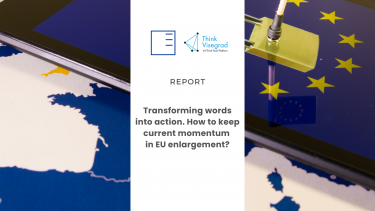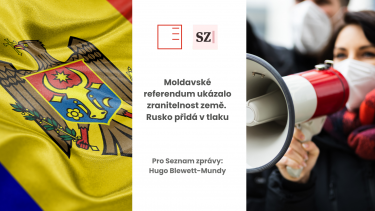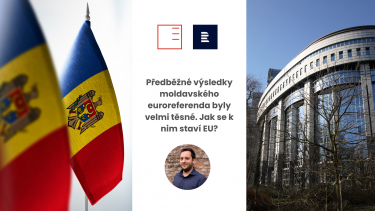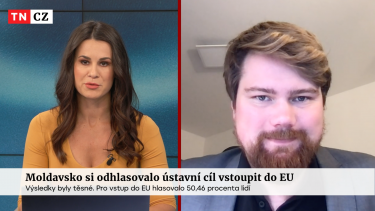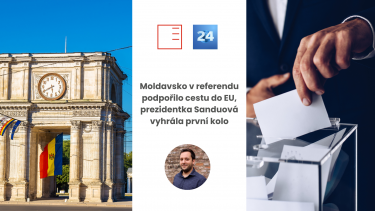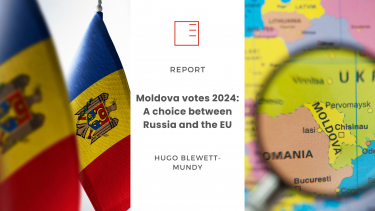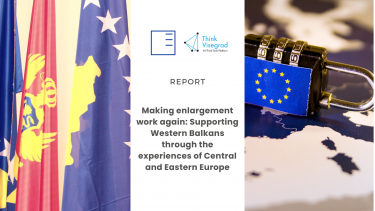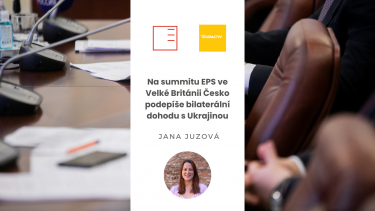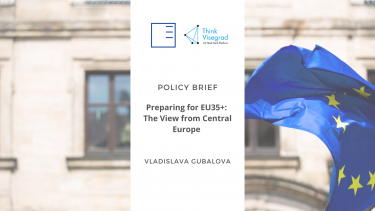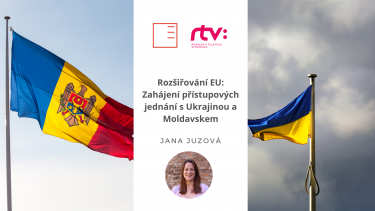Report | Transforming words into action. How to keep current momentum in EU enlargement?
On the 3rd of October, Think Visegrad in Brussels, represented by the Brussels Office of EUROPEUM Institute for European Policy, organized a discussion titled "Transforming words into action. How to keep current momentum in EU enlargement?". Experts from think tanks, diplomatic missions and EU institutions dwelled into the renewed focus on EU enlargement, including the initiation of accession negotiations with Ukraine and Moldova, the formulation of new strategies and financial incentives for candidate states, and reinforced commitments from the EU. The key challenge moving forward is ensuring that this momentum is sustained and translated into concrete, transformative actions that deliver measurable results.
Show more
Seznam zprávy | The Moldovan referendum showed the vulnerability of the country. Russia will add to the pressure
Last year, Moldovan intelligence services detected Russian funding worth at least half a billion Czech crowns, which was used to stop the prosecution of illegal political activities, incitement to anti-government protests and corruption. EUROPEUM Institute non-resident associate research fellow Hugo Blewett-Mundy wrote a commentary for Seznam Zprávy.
Show moreČRo Plus | The preliminary results of the Moldovan Euro-referendum were very close. How does the EU view them?
Moldova is likely to insert a European identity and a pro-European course into the preamble of its Constitution, according to the preliminary results of yesterday's referendum. The Kremlin, which according to the Moldovan government supported the opponents of the referendum, has already questioned the vote. Žiga Faktor, deputy director and head of EUROPEUM Institute's Brussels office, commented for ČRo Plus.
Show more
TV Nova | Moldova voted to join the EU, but it was a close call
In Moldova, citizens have voted in a referendum to join the European Union as a constitutional goal. The results were close. Martin Vokálek, executive director of EUROPEUM Institute, discusses the issue live on TV Nova.
Show more
ČT24 | Moldova's referendum supports path to the EU, President Sandu wins first round
Moldovans voted in Sunday's referendum to constitutionally anchor EU accession as a goal for the country. After counting the votes cast, voters decided by a narrow majority to support the country's Western orientation. Current pro-EU President Maia Sandu, who won the most votes in the first round of the simultaneous presidential election, accused "criminal groups" of undermining the referendum. The second round of the head of state election will take place on 3rd November. Žiga Faktor, deputy director of the EUROPEUM Institute and head of Brussels office, commented for ČT24.
Show more
Report | Moldova votes 2024: A choice between Russia and the EU
Moldova stands at a critical juncture that will determine its position within Europe. In the elections on Sunday, the incumbent president Maia Sandu is seeking a second term and a positive result in the EU accession referendum to reaffirm her country’s path towards Europe. But the hybrid threat facing Moldova from Russia will not dissipate, particularly as next year’s pivotal parliamentary elections approach in the tiny former Soviet republic. Hugo Blewett-Mundy, a non-resident associate research fellow from EUROPEUM, analyses the current situation in Moldova and provides an outlook for the country in 2025.
Show moreReport | Making enlargement work again: Supporting Western Balkans through the experiences of Central and Eastern Europe
On September 12th, EUROPEUM’s Brussels Office organized a public conference titled “Making enlargement work again: Supporting Western Balkans through the experiences of Central and Eastern Europe”. Following a keynote speech by H.E. Bálint Ódor, the panel discussions dwelled on the 2004 enlargement, its impacts on the EU and the lessons learned from the process through the perspective of current EU accession of the countries of Western Balkans.
Show more
Euractiv.cz | At the EPC Summit in the UK, the Czech Republic will sign a bilateral agreement with Ukraine
The United Kingdom is preparing for a major summit of the European Political Community (EPC). After the Czech Republic, Moldova, and Spain, Britain is only the fourth hosting country. Among other topics, the states will discuss Ukraine and illegal migration. On a bilateral level, the Czech Republic will sign a security agreement with Ukraine. Jana Juzová, a researcher at EUROPEUM Institute, commented on the summit for Euractiv.cz.
Show morePolicy Brief | Preparing for EU35+: The View from Central Europe
Despite the historical support of EU enlargement policy by the Visegrad Four (V4), these Central European states are now faced with the challenge of reconciling their stances with the new realities of the process. As Ukraine and Moldova opened their accession negotiations, the EU seems to be torn on the questions associated with the future enlargement(s) - institutional reforms and changes within the EU budget. Transitioning from economic beneficiaries to potential contributors, the V4 states must evaluate the potential political and economic impacts of new members on both the EU and their domestic levels. Writes and proposes recommendations Vladislava Gubalova from GLOBSEC.
Show moreRTVS | EU Enlargement: Initiation of Accession Negotiations with Ukraine and Moldova
The European Union has initiated accession negotiations with Ukraine and Moldova. What does this mean for its inhabitants? How do the accession talks proceed? And what must the countries fulfill? Jana Juzová, a senior researcher at EUROPEUM Institute, comments for Slovak RTVS Television.
Show moreStaroměstské náměstí 4/1
Prague 1 - Staré Město
110 00
tel.: +420 212 246 552
email: europeum@europeum.org
https://www.europeum.org
